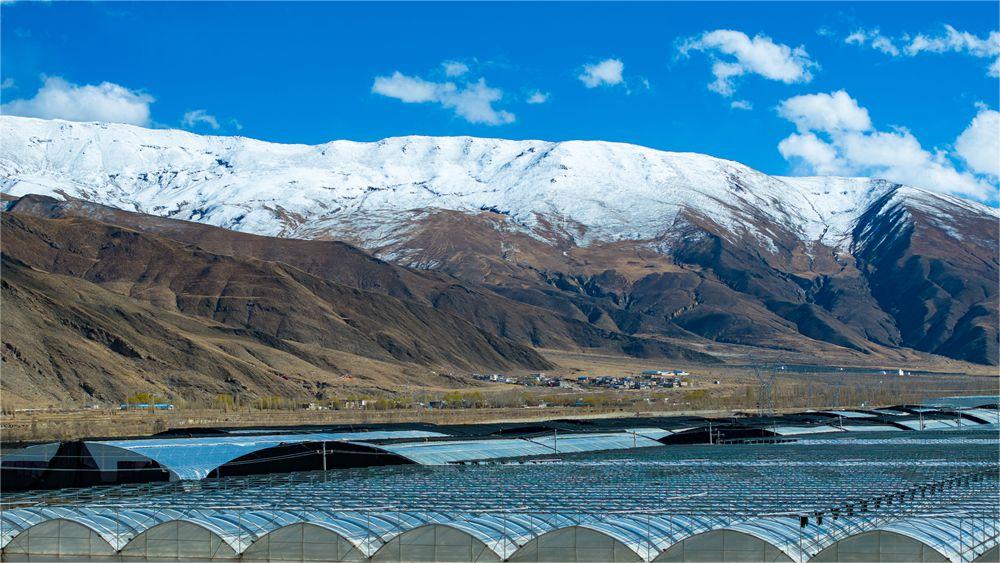Bloc politics undermines peace, stability in South China Sea
The United States, Japan and the Philippines recently issued a so-called Joint Vision Statement in Washington, distorting facts and confusing right and wrong on the South China Sea issue, the East China Sea issue and the Taiwan question, and arbitrarily smearing and attacking China.
This is completely against the public statement previously made by the U.S. side that the Japan-Philippines-United States Trilateral Leaders Summit and their trilateral cooperation are truly not aimed at China.
What the three countries intend to do is to establish an exclusive bloc for bloc politics and stoking confrontation, which hurts other countries' strategic security and interests, and brings serious risks to regional peace and stability.
The merits of the South China Sea issue, the East China Sea issue and the Taiwan question are very clear. Some relevant countries' attempt to challenge justice by establishing small blocs is doomed to fail.
The Taiwan question is purely China's internal affair. Resolving the Taiwan question is a matter for the Chinese themselves that no one can interfere. The biggest threat to cross-Strait peace now is the separatist activities of "Taiwan independence" forces and external connivance and support for them.
Some countries always talk about "peace and stability in the Taiwan Strait," but remain silent on opposing "Taiwan independence." This only emboldens the "Taiwan independence" separatist forces and undermines peace and stability in the Taiwan Strait.
China has indisputable sovereignty over Diaoyu Dao and its affiliated islands, as well as Nanhai Zhudao. Its activities in the East China Sea and South China Sea are lawful, justified and beyond reproach. China has unwavering determination and will in safeguarding its legitimate rights. China does not accept relevant countries' groundless accusation and deliberate smears against it on the East China Sea and South China Sea.
The root cause of the rising tensions in the South China Sea lies in the fact that some Philippine politicians have disregarded the interests of their country and people, seeking support from external countries to embolden themselves, and constantly provoking conflicts over issues such as Ren'ai Jiao.
Despite the Philippines' efforts to portray itself as a "victim," this cannot conceal its true provocative and troublemaking nature.
The Philippine side has continuously spread disinformation and hyped up the situation. Going back on its words, it refuses to tow away its illegally grounded warship in Ren'ai Jiao. It arbitrarily breached the understanding it had reached with China on properly handling the situation on Ren'ai Jiao, and made repeated attempts to send construction materials for large-scale repair and reinforcement of the warship, in an attempt to permanently occupy Ren'ai Jiao.
The Philippines has been violating China's sovereignty and the Declaration on the Conduct of Parties in the South China Sea (DOC), especially Article 5 which says refraining from action of inhabiting on the presently uninhabited islands and reefs.
China will not accept the wanton provocation by the Philippines and will resolutely stop it in accordance with law and regulations to uphold China's sovereignty and the sanctity of the DOC.
The recent escalation of tensions in the South China Sea is also a result of the meddling of external forces. The United States, driven by geostrategic considerations, has been fanning the flames, instigating disputes, inciting confrontation, and even forming cliques to conduct so-called joint patrols and military exercises in the South China Sea, wishing nothing but chaos in the region. Japan is not a party to the South China Sea issue, but it has deliberately intervened in it for its own expansion, which fully exposes the danger of its strategic direction.
In order to whitewash their actions that undermine peace and stability in the South China Sea, these external countries frequently cite the so-called South China Sea arbitration. The Arbitral Tribunal violated the principle of state consent, exercised its jurisdiction ultra vires and rendered an award in disregard of law. It gravely violates the United Nations Convention on the Law of the Sea (UNCLOS) and general international law. The award is illegal, null and void. It is for the purpose of upholding the integrity and authority of the UNCLOS that China does not accept or recognize it, and will never accept any claim or action based on the award.
Recently, more and more people with insight from ASEAN countries and the Philippines have been voicing rational views, opposing external countries' instigation of disputes and escalation of tensions in the South China Sea. They believe that "if your foreign policy is crooked or favors one country and is sometimes hostile because you are with America, then everything is wrong."
Peace and stability in the South China Sea have been maintained thanks to the collective efforts of China and ASEAN countries.
China's position on the South China Sea issue is very clear and consistent. It will stay committed to properly handling disputes through dialogue and consultation with countries concerned, and would like to work with ASEAN countries to fully and effectively implement the DOC, advance the consultation on a code of conduct in the South China Sea and jointly safeguard peace and stability in the region.
China hopes the Philippines will act on the understandings and consensus between the two sides, and observe the DOC. The Philippines needs to stop infringing on China's rights and making provocations, stop pulling forces outside the region into matters of the South China Sea, return to the right track of properly managing the situation through negotiation and consultation, and act responsibly for the peace and stability in the South China Sea.
(Zhong Sheng is a pen name often used by People's Daily to express its views on foreign policy and international affairs.)
Photos
Related Stories
- China rejects U.S., Japan, Philippines concern on South China Sea
- China urges ROK to stay prudent on South China Sea issue: Chinese FM
- China will not allow Philippines to act willfully on South China Sea issue: military spokesperson
- The facts and truth about Ren'ai Jiao
- China urges Philippines to immediately stop infringement, provocation in South China Sea
Copyright © 2024 People's Daily Online. All Rights Reserved.









